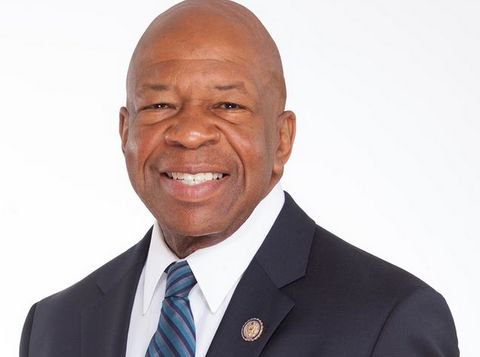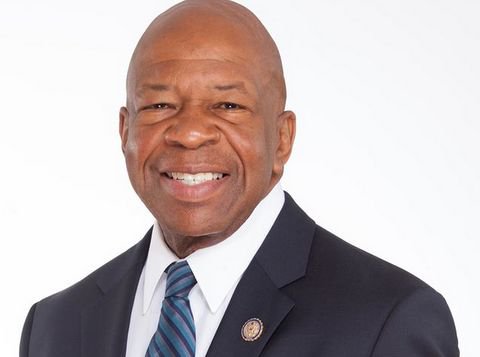[ad_1]
By Elijah Cummings, Special to the AFRO
Recently, in front of a Baltimore restaurant, I watched as a young man was pushed out of a car, unconscious, and on to the sidewalk in front of us – and I was told that this happens more often than one would think.
The young man, suffering from a drug overdose, was being dropped in a public place so that someone would provide him with the treatment that, hopefully, would save his life.
I share this horrifying experience with you to underscore a fundamental insight about the opioid epidemic that our nation is now experiencing.
Coming together as a society to better address this national public health emergency must not become a political issue. It is, at its heart, a challenge to our basic humanity.

The statistics are compelling. Nearly 64,000 Americans perished from drug overdoses in 2016, nearly 2,100 of those deaths occurring here in Maryland. The American families who now are suffering because of a loved one’s opioid dependency number in the millions.
Perhaps most alarming of all, and despite our nation’s efforts to date, the carnage is worsening.
These are the harsh realities that we, as a nation, must face and overcome; why the opioid epidemic has become a national public health emergency; and why we in the Congress must respond accordingly.
As a society, America has attempted to arrest our way out of this crisis, and that strategy has failed. All too often, loved ones and neighbors who have become opioid dependent have been stigmatized – and that prejudice has only accentuated the dangers that we now are confronting.
Yet, in contrast to all of these missteps, our health professionals have developed highly effective, medically-assisted treatment regimens that offer pathways from opioid dependency back to health. Tragically, however. only 10 percent of those who need treatment are now receiving this lifeline.
As a nation, must do better – and we must do better now or our countrymen and women will continue to suffer and die from this hemorrhaging epidemic.
Toward this end, the Congress should follow the assessment and advice of a national leader in fighting the epidemic, Baltimore City’s Health Commissioner, Dr. Leana Wen.
“Addiction is a [chronic] disease,” Dr. Wen has observed. “Treatment for that disease exists, and it works…, [but] the infrastructure needed to treat addiction as the chronic ailment that it is does not exist….”
More than anything else,” Dr. Wen advises us, “what is required … is a sustained investment of resources.”
Senator Elizabeth Warren (D-MA) and I are taking Dr. Wen’s advice to heart, and we strongly urge our colleagues in Washington to join us.
We have introduced proposed federal legislation that will begin to provide the sustained federal resources needed by local and state health providers to treat the opioid crisis like the critical public health emergency it has become.
Fortunately, our nation has a successful model that is guiding us as to how best to defeat this epidemic in an effective, efficient and humane way.
Our proposed Comprehensive Addiction Resources Emergency (CARE) Act (H.R. 5545), introduced last week, is modeled directly on the bipartisan Ryan White Comprehensive AIDS Resources Emergency Act that was enacted nearly 30 years ago to support federal investments and local decision-making to tackle the HIV/AIDS epidemic.
Now, we must overcome a comparable threat to our nation. It is time for the Congress and President to come together, put politics aside and provide adequate and sustained funding to combat the opioid epidemic.
Our proposed federal legislation would provide $100 billion over the next ten years, targeting a major share of these new resources directly to our nation’s hardest hit communities as they mobilize to provide the medically-assisted treatment that has been shown to work.
Tragically, some of those targeted communities are close to home. This is why, under our CARE Act, we estimate that Maryland would receive more than $98 million each year from federal formula grants.
Based upon the extent of documented need, $48 million annually would be directed to our Maryland state government, $14 million annually to Baltimore City, and just over $10 million to Baltimore County. Competitive grants could increase that federal funding.
To more effectively and humanely combat the disease of addiction and save lives, the CARE Act also would provide funds for research, train health professionals to diagnose and treat substance use disorders, and provide $500 million annually to purchase naloxone at discounted prices and provide it to first responders and public health agencies.
I am cautiously optimistic that my Republican colleagues will support our proposal, although it may take some of them awhile to come around.
After all, this epidemic is devastating communities in red states, blue states, and purple states. It is terrorizing families that are wealthy, poor, and everywhere in between.
They will also come to realize that our proposed federal funding is warranted in federal budgetary terms: a $10 billion annual investment to combat an epidemic that the President’s own economic council has concluded cost our nation more than $500 billion in 2015 alone.
As Dr. Leana Wen and other medical experts have advised us, we have the ability to overcome this epidemic. Now, we must take the good doctor’s advice and muster the political will.
Congressman Elijah Cummings represents Maryland’s 7th Congressional District in the United States House of Representatives.
[ad_2]
Source link


